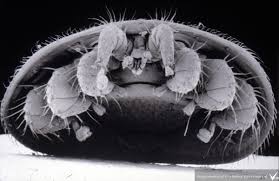Level One Certification Course
Smith Lake Farm has decided to offer a bee keeping Level one Certification course this spring. The course will be offered in a number of different segments. There will be a personalized interview with myself, Deborah Acheson, master beekeeper, to explore equipment choices and options as well as bee purchase options and just generally to get to know you and your beekeeping aspirations, followed by pre-recorded zooms which participants can watch at any time and then fixed date zooms likely in May with the actual course participants, as well as one afternoon/early evening and two days of instruction at the farm. The farm dates are Friday May 26, Saturday May 27 and Sunday May 28th. Glamping sites are available for those wishing to make a farm stay weekend out of the event. Glampers get a discounted rate on the glamping sites and are guaranteed bees!! And if you are coming from afar, you will be able to leave with your bees!! There is more information at the web site: smithlakefarm.com Registration is open now.
Novice beekeepers of the Comox Valley Beekeepers Club are invited to a Workshop to assemble basic hive gear with a woodworking pro.
Randy will help you assemble hive boxes, make up frames, and finish other gear for an entire bee colony. Bring safety glasses, lunch, and clothes to get dirty. We’ll use a set of special jigs, hand tools, and air tools to efficiently and safely create your gear. The real benefit to you is dealing with anything odd that comes up – Randy can help sort it out with his experience and collection of tricks / supplies / tools.
The shop is heated with a bathroom and plenty of space for social distancing.
Recommended kit attached below (RC example).
You can purchase kits / components from a local vendor that will deliver to my shop, or bring yourself from other sources.
Some people like plastic foundation (quick & convenient) instead of wax, I’m not sure the bees do.
Workshop dates are (Saturdays):
Feb 4
Feb 11
Mar 4
Mar 11
Schedule:
09:00 Start – 16:00 Typical finish
Location: Willis Way Courtenay (South off Huband Road)
Workshop fee = $25 (cash, card, e-transfer) to defray some of the shop supplies cost.
To register for a workshop spot, email randychurchill@me.com
Tell him:
– Name
– Phone number
– Beekeeping history (if any, none required, less the better)
– Workshop date preferred
– Special considerations I should know about
We will expand the program as needed and interest dictates.
Randy also sells fully assembled and painted hive gear by special order.
Will be a fun time, hope to see you in the shop.
Introduction to Biotechnical Varroa Control Methods
There are 2 dates to choose from:
• Saturday January the 28th at 10:00 AM, or
• Friday February the 3rd at 6:00 PM
It is required to sign-up for one of the workshops, in order to receive the Zoom link and further instructions.
Please send your sign-up request to: bees@truewood.ca with your name, e-mail address and phone contact, or simply click here (e-mail template).
The workshop and related materials are supported by the Bee BC Program through the Investment Agriculture Foundation of BC with funding from the Government of British Columbia. Our club member Wolfram Wollenheit will conduct the workshop via Zoom, the duration is about 1.5 hour.
Members that have participated are eligible to loan 2 queen frame cages from the club for the 2023 bee season (until supply lasts). The workshop also covers how to build your own drone half frames and queen frame cages (deep and medium).
Tests in the 2022 bee season had been successful and we are looking forward for our members to apply these methods in their apiaries. This project requires feedback of the experiences and suggestions for the future. All members are encouraged to participate.
Wendi Glison, Hands-on Introduction to Beekeeping 2023
Have you been thinking about becoming a beekeeper? Hands on Introduction to Beekeeping 8 month program 2023 registration is now open. This will take place on the third Sunday afternoon of each month, March – October.
It starts with an online portion in February, and is then located in our beeyards in and around Cumberland with monthly online support materials. Registration is limited to 10 people. Course fee is $400.00.
Course Outline:
Our series of 8 field days will run from March through to October following the seasons of the bee. Here’s what we’ll be doing each month (subject to adjustment according to the whim of the bees and weather). Most sessions will be in one of our Cumberland bee yards.
March: hive equipment and building, site assessment, where to get bees
April: mindful inspections – having fun and a plan – feeding bees
May: installing nucs and packages and spilts for swarm and mite control. We focus on local rather than imported bees.
June: preparing for honey production. Even if it’s your first season and you’re not expecting surplus honey, there’s still management to take advantage of the flowers so the bees can set themselves up well for winter. July: queens, and spilts for overwintered nucs and mite control
August: products of the hive
September: Getting ready for winter
October: Wrap up
Guest speakers from the local beekeeping community will be popping by, and we look forward to offering ongoing support through the season.
To register, e-transfer the course fee to wendigilson@yahoo.ca or contact me to make another arrangement or if you have any questions!
Wendi’s Instructor bio: I love teaching people about amazing Apis mellifera and beekeeping. I love the amazement and eagerness the students have. I’m a certified bee master (UBC 2014) and a Regional Apiary Inspector for the BC Ministry of Agriculture. I’ve been running my own small scale apiary – Black Horse Apiary – since 2011, and keeping bees for years before that. I’m a promoter of healthy bees and a member of CAPA – Canadian Association of Professional Apiculturists, and have participated in contract field work for the National bee disease Centre. If you’re on Facebook, you may like to join our Blackhorseapiary facebook group Don’t hesitate to contact me if you have any questions!
OREGON STATE UNIVERSITY POLLEN COLLECTION PROJECT NEEDS CITIZEN SCIENTISTS!
A pollen nutritional composition database is being developed by researchers from Oregon State University. If you’re interested in collecting pollen (from your bees or other floral sources) and submitting it to OSU, view this video:
https://oregonstate.app.box.com/s/wl8tngbid8qmkofovcvfd29uqndbfxit
Use this spreadsheet to track samples:
https://docs.google.com/spreadsheets/d/194scP78KpFhv4ePU1E1-Vcg8mpEYTjkTK8MCrAdM4_E/edit#gid=0
Contact Wendi Gilson WendiGilson@yahoo.ca for the 8-page PDF on pollen collection methods
And contact Jen Larsen Jen.Larsen@oregonstate.edu prior to shipping any samples.
RECORDING OF RECENT NY BEE WELLNESS WEBINAR AVAILABLE
EXCELLENT INFORMATION! https://youtu.be/N4ALfqq3GT8
“Know your enemy: Understanding Varroa mites” by Dr. David Peck
Bookmarked:
00:52 – Learning objectives; Why study Varroa?
2:32 – Historical spread of Varroa
7:44 – Biology of Varroa
16:32 – Virus Transmission
21:07 – Year round mite control; vertical & horizontal transmission
34:46 – Mite jumping onto bee from flower
42:00 – Monitoring
47:26 – Mite diagnosis
51:20 – Control
1:04:12 – Questions


DIAGNOSTIC LAB RE-OPENS
(BC Ministry of Agriculture)
The lab in Abbotsford is again accepting mail-in bee samples for disease diagnosis (Nosema, AFB, EFB, etc.); however, due to a backlog, individual beekeepers are ask to submit a limited number of samples. Only submit sample(s) when there is suspicion of disease.